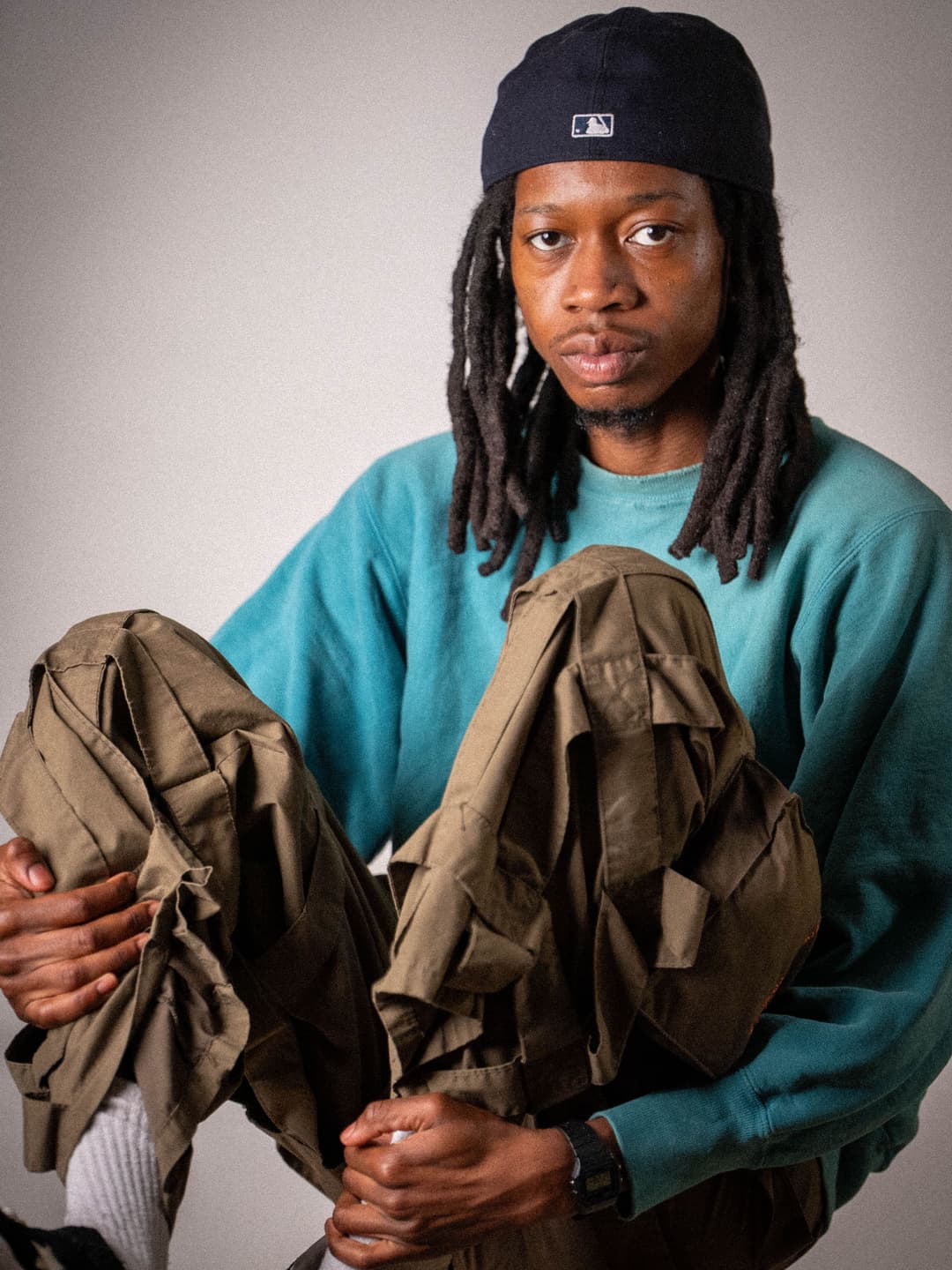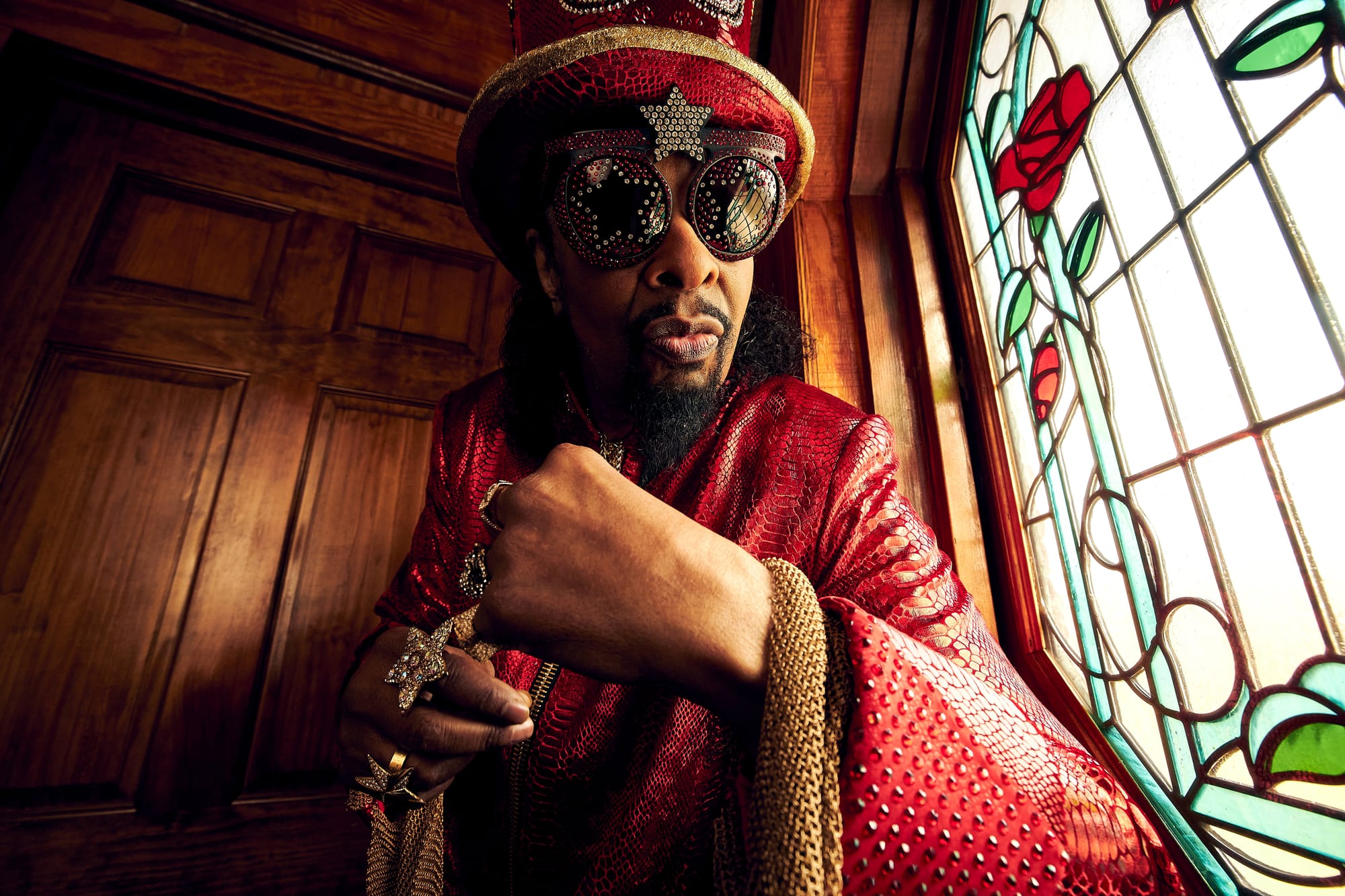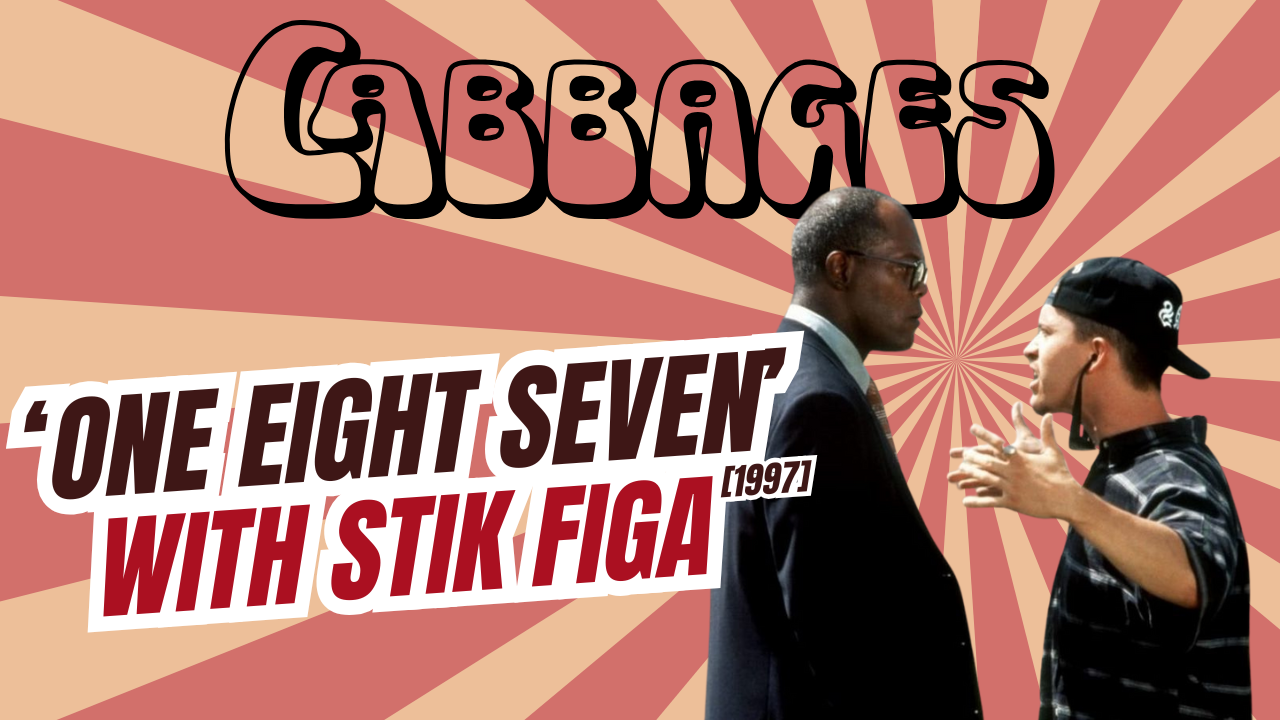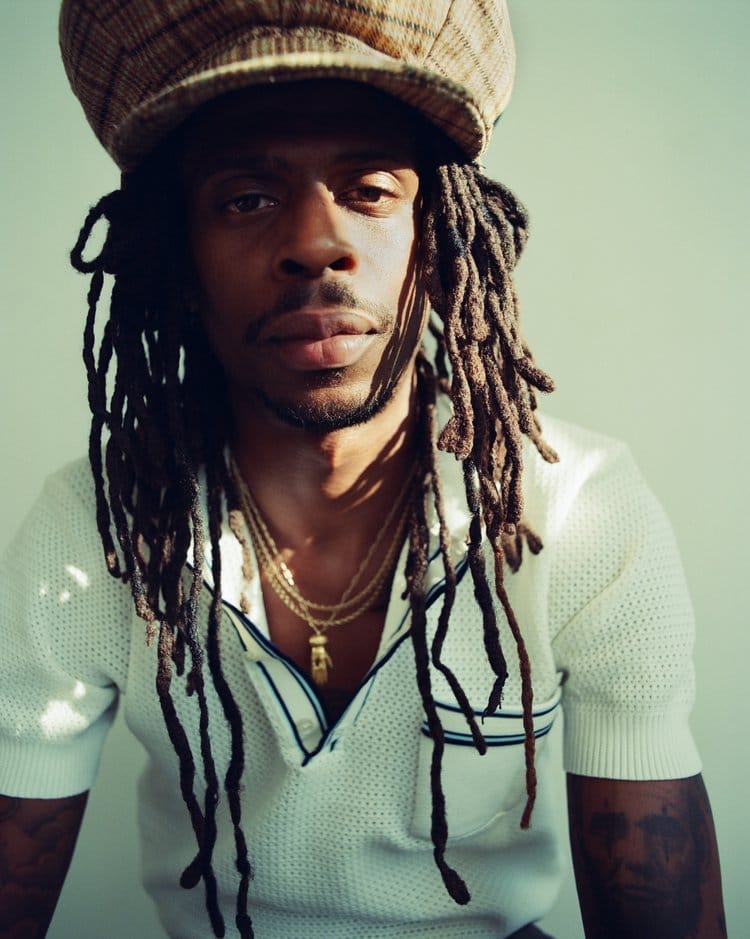Deem Spencer On Executing His Vision
The Queens native discusses his Jackson Pittman-produced 'yung' EP. +reviews of Bub Styles, Willie The Kid


From an outsider's perspective, it might seem that Deem Spencer is slowing down.
Though one would never call the Queens native a particularly prolific artist, he respectably averaged about a project every two years since 2017's self-released We Think We Alone. Since the release of adultSW!M, his 2023 full-length for the drink sum wtr imprint, his output turned even more austere–that is, if size matters. First came last summer's All These Crying Birds, a five-track EP, followed some ten months later with this past Friday's yung, a three song set roughly eight minutes long.
Both of those bore a single producer, Jackson Pittman, and perhaps in another timeline the two concise efforts would have been merged into a single album or mixtape. But to hear Spencer tell it, this has actually been one of the busiest creative periods of his life. Though only a handful of the songs with Pittman made their way onto his post-adultSW!M releases, he estimates they've recorded somewhere around a hundred demos together. Originally, he had intended for those to eventually source a new full-length project, but after connecting last year with a different producer, the Brooklyn-based Elie Bashkow, he decided to go in another direction.
"I started making this music with Elie and this music was very different," Spencer says. "It inspired me and sort of reassured me that I could really step out of my comfort zone with an album." While he intends to drop this as-yet unnamed project sometime this year, his love for the material done with Pittman endures, as the release of yung proves.
While other artists would seek to flood the zone to stay visible, Spencer's more measured approach makes the case for quality over quantity. Even his features are scarce and, thus, precious. Last year, he appeared on Machinedrum's retrofuturist album 3FOR82, and also hopped on a crowded remix of H31R's "Backwards" with Desde, Fatboi Sharif, and Goya Gumbani. "I like to show up in different places as myself," he says. "Socioeconomics aside, I can show up anywhere as me and say what I need to say."
Even still, he's exceedingly aware, almost hyper-cognizant if you will, about staying true to himself in the process at every stage. In the self-admittedly rare instances where he feels he faltered on that front, it wounds him on an existential level. "That's the tricky part about releasing honest, vulnerable, personal material," he says. "You can learn further context later on that will create a wedge between you and this recorded piece of thought."
CABBAGES: In what ways does your work with Jackson Pittman differ from what you've been doing with Elie Bashkow?
Deem Spencer: Jackson doesn't come from a musical background. He's been making music as long as I've known him, but he was also a farmer and he's also into politics. He's a very interesting dude. Through these sessions, I felt like it was inspiring and self-assuring himself as a producer. In a way it felt like my first time making so much music. Any project that I'd made, I'd need 10 songs; I made 10 songs. But with Jackson, I've made so many songs. I had never worked like that before, so taking what I learned from adultSW!M and applying that to a more fast-paced process just inspired me. I felt like I could anything.
Elie does come from a much more musical background. He plays a lot of instruments and he has a more production approach to collaborating. The first song that we made was a beautiful song that we really love, just sonically and just thematically where I want to go with this album. It's completely different from the body of work that I've made with Jackson–completely different. But I do love how everything that I've made but still feels like me. That's my favorite quality of all of this.
That seems like an intentional part of what you've done throughout your catalog, cultivating and maintaining a musical identity that's genuinely yours.
I don't even mean to say that it's a conscious effort, but that's when I know I can stand on it, when I can still see myself in the work. As long as that's there, I feel like it works. There's very few instances where I've put out something and it doesn't look like me to me, or it doesn't feel like me to me. Yeah, that's real: if it feels like me, it goes. That's why everything has that common thread.
Considering how much you recorded with Pittman, what prompted the release of yung as a three-song EP as opposed to something longer?
I was going to release the songs separately, but drink sum wtr thought it would be good to package them. I had the three songs in a folder called yung. I don't why I called it that, but I just had it saved as that. Even though it didn't come from any sort of inspired idea, sometimes things just go together aesthetically. The photo that I chose for the cover, that's one of the first photos I remember taking, physically remember being in front of a camera for.
Is that a school photo or is that from a studio?
That was a daycare photo. That's a very early memory. I've always had that photo; my friends have laughed at that photo.
"even if it's tho," that song was a highlight of my sessions with Jackson. My boy Mike was even there. I didn't even realize he was there. I didn't even remember that part. According to Mike, we were all in the room that we were making the songs and I said, excuse me, I'm going to go out there for a little bit. I'll be right back. I went outside, I came back and I said, yo, I just made some shit. and I played them "even if it is tho," which I had recorded in the living room. I don't remember the process of making it, but just every time I listen to that song and that idea, it's just such a beautiful song.
It's beautiful to me too. If you aren't paying attention then it washes over you, but if you are listening to it, there's some profundity to the statement in that hook. Was it, topically, something you were ruminating on at the time?
I was going through so much during that time, a lot of transition. It was a lot. It was a very emotional and new time. adultSW!M had just come out and I'm going through so many changes in my life. Just what was going on at the time, none of it was what I expected from the months following the release of this album I had put so much into. It taught me a bit about expectations.
You mean personally and professionally?
Yeah. I thought after adultSW!M came out, it would be up from there, but it was the opposite, in a few ways. I noticed that I needed change. Something's got to change. Starting to work with Jackson around this time, that's probably why so much music came out of it. I was able to say so much.
My favorite thing about just writing is just letting out humor. That was a beautiful part of these songs. Some of these songs are so clever, cheeky, just brilliant. And there's so many that probably aren't going to come out for a while because I have an album that I want to put out soon and I'll likely be very inspired to do the next thing.
But this is a new problem for you. Now you have a backlog.
Right. I've never had that before.
The way I'm working right now is more focused. I learned how to collaborate with adultSW!M. I relearned the balance of collaborating and being so focused on my own vision. With Jackson, it was a beautiful balance. I achieved that balance and now I'm doing it with a very talented producer. I love what we've made and I'm excited to execute the vision.

Bub Styles, Outerwear SZN 5
As one of the minds behind the Chinatown Sound freestyle video series, Bub Styles continues to make himself an indispensable asset to New York City's independent rap scene. On this fifth installment in his Outerwear SZN saga, the self-proclaimed Cold Cut King crafts a suitable sound for his hometown's characteristically chilly Spring awakening with some forceful assistance by producers like Graphwize, Sebb Bash, and Griselda fave JR Swiftz. A strong personality on the mic, he can overwhelm with rough-and-tumble lifestyle lyricism, his point of view on "LIFELINE" informed by block business and filtered through his trademark rasp. But as with so many of his projects, the punchlines hit like calculated jabs, separating himself from the less artful of the narco-rap pack on "FLOOD THE AVENUE" and the somewhat breezier "SHOW AND TELL." On the drill-adjacent "ACTIVE FLEECE," he bursts through like the North Face equivalent of the Kool-Aid Man, bragging about moving massive weight and dining at Michelin-starred establishments within mere breaths of one another. Later, ARXV and Pro Dillinger make similarly audacious proclamations over Retrospec's boom bap number "PRIVATE STOCK."
Willie The Kid & Real Bad Man, Midnight
An erstwhile Gangsta Grillz fixture with established connections to mainstream rap stars and underground faves alike, Grand Rapids, Michigan-born Willie The Kid boasts a hip-hop discography few if any could match in its depth and breadth. While much of his output in recent years has been with go-to producer V Don, his latest project arrives as a co-headlined collaboration with Real Bad Man, the fashion and design veteran steadily building a formidable hip-hop production catalog of his own. As expected at this stage in his career, Willie's proficiency as an emcee comes through with nearly every bar, evident on "Light It Up" and the methodically paced "Maxwell's Peacoat Collection." He eases comfortably back with a cigar in hand while doling out wisdom on "Not Going" and sits upright to make meaningful moves on the chessboard of "Empires." As for guests, RBM fave Boldy James runs the numbers up for the cinematic bap attack "Cold Michigan Nights," while UK spitter SonnyJim adds his luxurious touch to the distinctly jazzy "And It's Like That."


Three new tracks to snack on...
Revival Season, "8'3"
Nayla Savannah, "Demon Time"
EBK Jaaybo, "Long Live My Brother"





